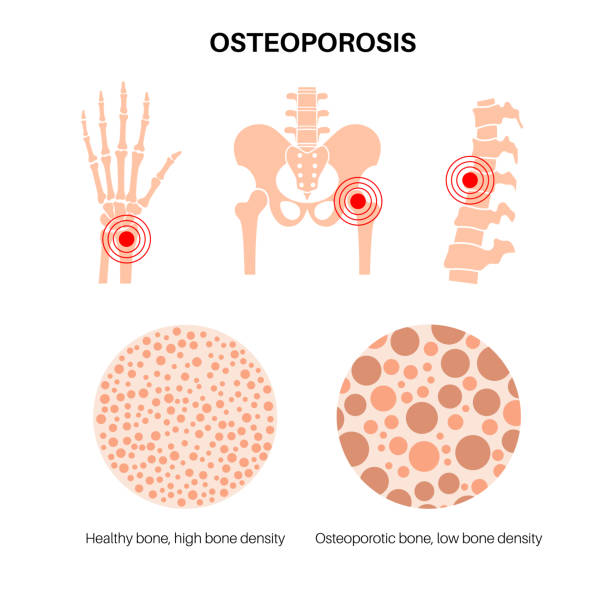Sleep may seem like the quietest part of our lives, a time when our bodies shut down and our minds drift away into dreams. Yet in reality, sleep is one of the most dynamic and fascinating states of being. While you lie in bed, your brain is anything but idle—it is buzzing with activity, repairing, reorganizing, and even creating. In fact, sleep is not the absence of consciousness but rather a different form of consciousness, one that is essential for your health, memory, emotions, and survival.
Scientists have spent decades peering into the mysteries of sleep, and though much remains unknown, one thing is certain: sleep is vital for the brain. It is not a passive state but a deeply active process where countless things happen at once. From cleaning toxins to building new memories, your brain is working tirelessly while you dream.
Here are 15 incredible things that happen to your brain while you sleep—scientifically accurate processes that reveal why sleep is far more important than most people realize.
1. Your Brain Clears Away Toxins
One of the most important jobs your brain performs during sleep is cleaning itself. Just like your body needs to eliminate waste, your brain also produces byproducts of metabolism—proteins and molecules that, if left to build up, could damage brain cells.
During sleep, a special system called the glymphatic system becomes highly active. This system flushes out toxins, including beta-amyloid, a protein linked to Alzheimer’s disease. Studies show that your brain’s cells actually shrink slightly while you sleep, creating more space for cerebrospinal fluid to wash away waste.
In other words, sleep acts like a deep-cleaning cycle for your brain, scrubbing it of harmful debris. Without this nightly cleaning, toxins accumulate, impairing memory, focus, and long-term brain health.
2. Memories Are Consolidated
When you learn something new—whether it’s a fact, a skill, or an experience—your brain records it temporarily. But for that memory to stick, it needs to be consolidated, transferred from short-term storage into long-term memory.
This process happens while you sleep. During certain stages of sleep, particularly slow-wave sleep and REM sleep, the brain replays and reorganizes neural activity from the day. Like a librarian sorting books, your brain decides which memories to keep and which to discard.
This is why studying late into the night without sleeping is often less effective than sleeping after learning. Your brain needs that time to weave knowledge into lasting memory networks. Sleep is where learning becomes permanent.
3. Creativity Gets a Boost
Have you ever woken up with a solution to a problem you couldn’t solve the night before? That’s because your brain doesn’t just consolidate memories while you sleep—it also makes creative connections between them.
During REM sleep, your brain activity resembles wakefulness, but logic and inhibition are dialed down. This allows your mind to form unusual links between ideas, sparking insight and creativity. Some of the world’s greatest discoveries, from scientific breakthroughs to artistic masterpieces, have been credited to dreams and sleep-inspired ideas.
Your sleeping brain is like an artist at work, painting connections across the canvas of your memories.
4. Emotions Are Processed and Balanced
Sleep is not only about memory—it’s also about emotion. Throughout the day, your brain absorbs countless emotional experiences, from joy and excitement to stress and fear. Without proper sleep, these emotions can pile up and overwhelm you.
While you sleep, especially during REM sleep, your brain replays emotional experiences and helps you process them. It’s as if your brain is gently “resetting” your emotional balance, reducing stress and dampening the sting of painful memories.
This is why sleep deprivation is closely linked to anxiety, depression, and mood swings. Sleep is your brain’s emotional therapist, quietly working through the day’s feelings while you dream.
5. Your Brain Practices Problem-Solving
Sleep isn’t just about remembering—it’s also about rehearsing. Your brain uses dreams and neural replay during sleep to practice solving problems.
When you face a challenge, your brain may continue working on it after you fall asleep, running through potential scenarios and solutions. Research shows that people who sleep after struggling with a puzzle or problem often solve it more effectively the next day.
It’s as if your brain has a night shift team working overtime to figure things out.
6. Learning Motor Skills and Habits
Have you ever tried learning a musical instrument, a sport, or a new dance move? You may have noticed that after a night of sleep, your performance improves—even without additional practice.
That’s because your brain strengthens motor memory while you sleep. Neurons involved in movement fire in specific patterns, and these patterns are replayed and refined during sleep. This solidifies new motor skills, turning clumsy attempts into smooth, automatic habits.
Sleep, in this sense, is like a personal coach that trains your brain while you rest.
7. Your Brain Strengthens Synaptic Connections
Neurons communicate through synapses—tiny connections that transmit signals between brain cells. These connections are constantly changing, strengthening when used and weakening when not.
During the day, your brain forms new synaptic connections as you learn and experience things. But too many connections can overwhelm the system, making it noisy and inefficient. Sleep helps prune unnecessary connections while strengthening the important ones, a process known as synaptic homeostasis.
This makes your brain more efficient, sharper, and better prepared for the next day of learning.
8. Dreams Create Virtual Reality
Perhaps the most mysterious part of sleep is dreaming. While much about dreams remains unknown, scientists believe they serve multiple functions: processing emotions, rehearsing threats, consolidating memories, and stimulating creativity.
When you dream, your brain creates a virtual reality simulation—a world made entirely of neural activity. These experiences may be strange or surreal, but they are powerful tools for your brain to test ideas, practice responses, and even explore your imagination.
Dreaming is your brain’s way of playing, experimenting, and expanding its horizons while you rest.
9. Brain Plasticity Is Enhanced
Neuroplasticity is the brain’s ability to adapt, change, and grow throughout life. Sleep plays a critical role in enhancing this plasticity.
During sleep, especially REM sleep, the brain reorganizes its networks, strengthening connections that are useful and weakening those that are not. This plasticity is vital for learning, development, and recovery from brain injuries. Babies and children, who are undergoing rapid brain development, need more sleep than adults—reflecting how important sleep is for growth and adaptation.
10. Your Brain Regulates Hormones Linked to Mood and Cognition
Sleep influences not just the brain but also the chemical messengers that regulate mood, memory, and focus. Neurotransmitters like serotonin, dopamine, and norepinephrine fluctuate during sleep, restoring balance and preparing your brain for the day ahead.
Poor sleep disrupts these delicate balances, leading to mood swings, irritability, and difficulty concentrating. By contrast, good sleep replenishes these chemicals, giving you mental clarity and emotional stability.
Your brain, in essence, uses sleep as a chemical tune-up, adjusting its inner orchestra of neurotransmitters.
11. The Brain Sorts Out Important and Unimportant Information
Throughout the day, you are bombarded with information—sights, sounds, facts, emotions, experiences. If your brain tried to hold on to everything, it would quickly overload.
Sleep provides a crucial filter. Your brain sorts through the flood of information, discarding irrelevant details while storing what matters most. This helps prevent clutter, ensuring that your memories are meaningful, not chaotic.
This nightly sorting process is why you remember key lessons or meaningful conversations but forget trivial details like what shirt someone was wearing.
12. Sleep Helps the Brain Fight Inflammation
Sleep also protects your brain by regulating inflammation. Studies show that during deep sleep, your brain helps reduce inflammatory molecules that, if left unchecked, can damage brain cells and contribute to neurological diseases.
This is another reason chronic sleep deprivation is linked to conditions like Alzheimer’s, Parkinson’s, and even stroke. While you sleep, your brain acts like a healer, calming internal storms that might otherwise harm you.
13. Your Brain Regulates the Stress Response
The brain’s stress system, governed largely by the hormone cortisol, also undergoes important regulation during sleep. Cortisol naturally follows a rhythm, peaking in the morning to wake you up and dipping at night to allow for rest.
When you sleep properly, your brain resets this rhythm, keeping stress in check. Without sleep, cortisol levels rise, leaving you anxious, restless, and mentally drained.
This makes sleep one of the most natural and effective stress-management tools available.
14. Your Brain Prepares for the Next Day
Sleep is not just about repairing the past—it is also about preparing for the future. While you sleep, your brain organizes and strengthens neural pathways, ensuring that you wake up alert, focused, and ready to take on new challenges.
It is like your brain spends the night rehearsing tomorrow—anticipating needs, consolidating energy, and preparing its networks for learning, decision-making, and creativity.
15. Sleep Protects Long-Term Brain Health
Perhaps the most profound thing sleep does for your brain is protect it over the long term. Chronic sleep deprivation has been linked to neurodegenerative diseases, cognitive decline, and memory loss. By contrast, healthy sleep habits preserve brain structure and function well into old age.
Sleep is, in many ways, your brain’s greatest defense against aging. Each night of rest is an investment in lifelong cognitive health.
Conclusion
Sleep is not wasted time—it is one of the most vital, complex, and mysterious processes of human life. While your body rests, your brain is wide awake in its own way, cleaning toxins, building memories, balancing emotions, fostering creativity, and ensuring your survival.
The 15 things your brain does while you sleep are reminders of just how essential rest is to our well-being. Sleep is not a luxury but a necessity—a biological gift that fuels our minds, protects our health, and shapes who we are.
When you close your eyes tonight, remember that your brain is about to embark on a journey more active and important than anything you could do while awake. Sleep is not the end of the day—it is the secret engine of life itself.






